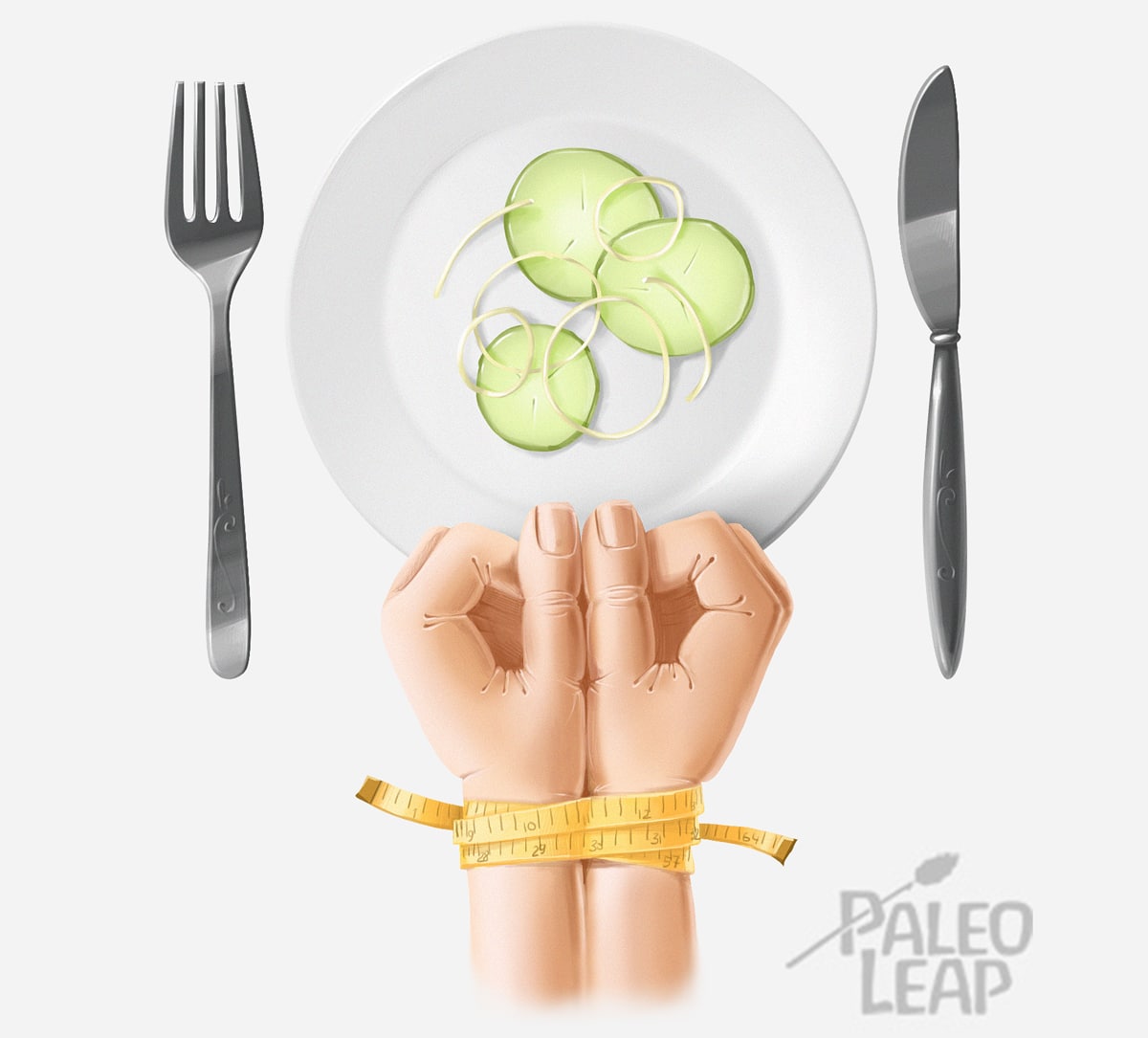
Stress eating: a lot of research has found that chronic stress really does increase cravings for junk food. That’s one reason why chronic stress is so strongly associated with weight gain. Stress also promotes weight gain in directly physiological ways - but the stress-induced cravings definitely don’t help.
Here’s a look at the biology of stress-eating and what options you have for minimizing it on a Paleo or keto diet.
Why do we stress-eat?
Under very extreme stress, most healthy people don't want to eat. The acute stress response reduces appetite - nobody wants a big meal when they feel like they’re in immediate physical danger.
The kind of stress that really triggers stress-eating isn’t acute stress; it’s chronic stress. Traffic. A job you hate.The daily struggle of caring for an elderly parent without enough support. Never life-threatening, but always keeping you a little on edge. Chronic stress really messes with the hypothalamus - a part of the brain that also plays a huge role in hunger, appetite, insulin sensitivity, and metabolic health generally.
By interfering with the hypothalamus, chronic stress can increase cravings for hyperpalatable junk food. And in at least some people, chronic stress can change the hunger response to acute stress- in people under chronic stress, a sudden rise in stress hormones can actually increase ghrelin, a hormone associated with hunger. People under chronic stress eat more even after an acute stressor. So when people do react to acute stress by stress-eating, it's likely because of the underlying chronic stress messing up their body's responses.
This study suggested that stress-eating in these situations really does “work” temporarily - in women who went through a hard time in their life (e.g., the death of a spouse, a job loss, etc.), eating “comfort food” actually reduced perceived stress. But of course, it has physical consequences, and it also doesn’t actually solve the problem.

Why do some people stress-eat and other people stress-starve?
Stress-eating is a classic trope, but we all know at least one person who does the opposite - under stress, they stop eating and lose weight. About 40% of people eat more under stress, 40% eat less, and 20% don’t change their eating patterns in any noticeable way.
There do seem to be personality differences at play - people with more impulsive behavior and people who are more concerned about controlling their diet in general tend to stress-eat more often. It’s hard to predict who exactly will turn out to be a stress-eater and who will be a stress-starver, but if you’re in the eating category, the next part of this post is for you.
Preventing stress-eating
Understanding where stress eating comes from is nice, but it doesn't actually help with the "prevention" part of things.
Of course, the ideal situation would be to avoid chronic stress - wouldn’t it be great if nobody had a job they hated, everyone always had the social support they needed at every point in their life, unhappy marriages didn’t exist, and every family was a bundle of joy? But back in the real world, what can real people actually do to manage a stressful time without gaining 20 pounds of anxiety weight?
Stress management techniques actually do help
This study suggested yoga- not as an in-the-moment intervention where you do yoga instead of eating, but as a generalized stress-management strategy. The researchers found that regular yoga practice during stressful times reduced emotional eating generally. This study also confirmed that deliberately inducing the relaxation response can help with stress-eating generally.
Plan for the cravings
It sounds almost too simple, but just making a specific plan for handling stress cravings can help. In this study, some subjects had to communicate with researchers about what healthy snacks they would eat under stress, while others didn’t. During actual stress, the subjects who had to proactively plan healthy snack alternatives ended up eating a lot better.
Plan something tasty enough that you want to eat it, and make an actual plan to eat it (does it need to be in your purse at 3pm? In your desk? Your car? What will you do if you pass the vending machine on your way to get it?)
Managing restraint

People who have high dietary restraint (in other words, people who care a lot about restricting what they eat) are more prone to snacking in response to stress. This study found that restrained eaters (people who are trying to restrict food) showed different responses to stress. Specifically, they had a higher rise in ghrelin (making them more hungry) and a lower rise in cortisol. And this study even found that restrained eaters didn’t experience the normal drop in desire for food when they were so stressed they physically felt it.
In other words, dietary restraint magnifies the urge to eat your stress. Not exactly a surprise: dietary restraint is itself stressful, so it's basically just adding stress to stress. This suggests that reducing restraint as much as possible during a stressful time is a good plan - but...
- Totally throwing off all dietary restraint and eating whatever you want might not even be an option for people with severe allergies or food sensitivities. If you have Celiac disease, your gut doesn’t care about your need to feel relaxed and liberated - gluten is still gluten.
- Even for people without serious physical issues, if you’ve been restricting food in one way or another for any length of time, suddenly abandoning that restriction can be a huge emotional challenge - not necessarily welcome in the middle of a big life stress.
- Weight loss in the middle of the modern food environment typically does require some degree of restraint, which is tough but unavoidable.
Here’s a compromise idea: stick to nutrient-dense Paleo foods (which have more of the nutrients you need to fight stress anyway), but don't restrict the amount you eat. Eat in satisfying amounts whenever you feel hunger. If you restrict foods like fruit or nut butter for physique reasons, maybe relax about it until the stress has passed. It might not be totally ideal for your abs, but diving headfirst into a jar of Nutella would be even worse!
Those were three ideas - now it’s your turn! What’s your best tip for managing stress without eating your feelings? Let us know on Facebook or Twitter!





Leave a Reply